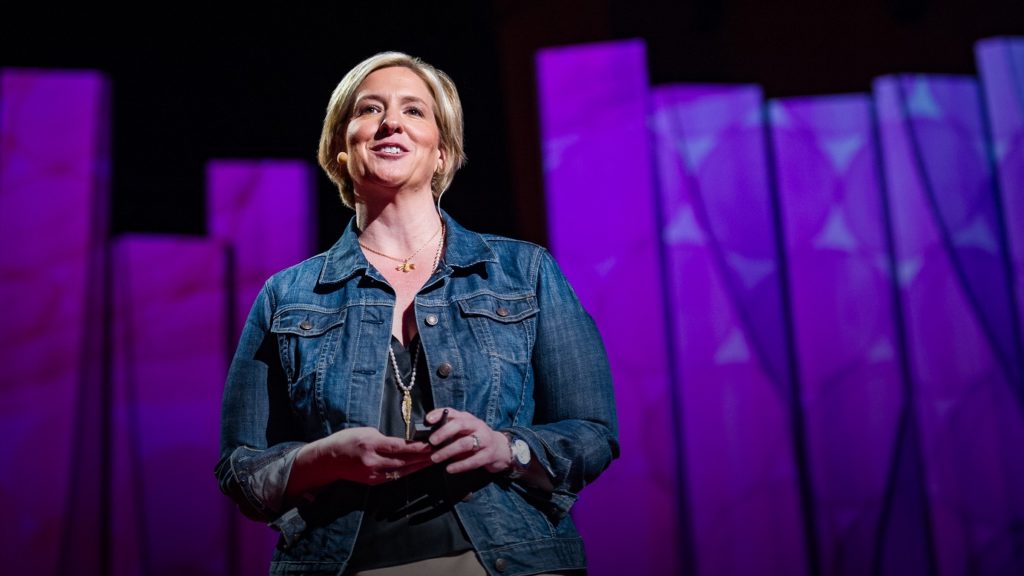As workplaces all over the world adjust to their COVID-19 realities, it will be courageous and curious leaders that spur on successful teams, and reap the productivity rewards too.
That’s according to professor, author and leadership guru Brené Brown, speaking at Qualtrics’ Work Different online event yesterday.
Much of Brown’s work focuses on the ‘irreducible needs’ of humans — love and belonging — and during the COVID-19 pandemic, these are more important than ever.
All over the world, people’s lives have been turned upside down.
“We need to rethink how we’re taking care of ourselves, how we’re taking care of each other, how we’re taking care of our communities — we’re going to need to rethink how we’re showing up with each other.”
That means taking note of irreducible needs in the workplace too.
“Love is not a word that we use or think about a lot at work, especially when we think about other people … and I think that makes sense in some ways,” Brown said.
But, the need for love manifests in a slightly different way.
“The thing we also don’t talk about, which doesn’t make sense, is that care and connection and affection for each other is an irreducible need for people at work,” she explained.
“When you walk into the office, your need for care and your need for respect and your need for connection doesn’t dissipate.”
That brings us to the need for belonging.
During her own lengthy research into leadership, Brown says this is something she was surprised to see standing out in military leadership. Many military leaders said affection for those you’re leading should be mandatory.
“And if you can’t feel or find affection for the people you lead, you shouldn’t be leading them.”
In her own business, Brown has gone so far as to reframe diversity, equity and inclusion (DEI) efforts as DEIB — diversity, equity, inclusion and belonging.
“Especially right now, when we’re so anxious and there’s so much vulnerability and uncertainty, we need to do more than diversity and equity and inclusion. We need to create real belonging in our culture,” she said.
“The thing that’s very powerful about belonging is that true belonging doesn’t require us to change who we are, it invites us to be who we are,” she explained.
“We feel a sense of belonging when we can show up as our true selves, bring our talents and our perspectives, and be seen, and know that we matter, and that we’re a part of something.”
Teachable skills
During her lengthy research into leadership, Brown and her team interviewed 150 leaders from around the world in various different industries of various different sizes.
“The answer saturated across every segment,” she recalled.
“We need braver leaders. We need more courageous cultures.”
But being brave is easier said than done.
“I hypothesised that the greatest barrier to brave leadership was fear,” Brown said.
“I was completely wrong. The hypothesis was wrong.
“The greatest barrier to courageous leadership is armour, and that armour gets in the way of us being human, of us caring, of us expressing empathy and compassion.”
To be daring is to “lean into vulnerability,” she said, while also being curious and opening lines of honest communication with employees.
If something seems ‘off’ with a team member, check in, ask about what’s going on, and how you can provide support, she advised.
“Moving forward, in order to be a brave leader in this culture, especially now when everyone is scared … we need curious leaders.”
As the COVID-19 crisis continues and remote work remains the norm, workplaces have become more and more driven by technology.
That means, more than ever, leaders have to focus on the humans behind the screens.
Performance, accomplishments and achievements do not have to be mutually exclusive to empathy and caring for your team members, Brown stressed.
“The leaders who are still going to be standing in five years are the leaders that don’t see them as mutually exclusive, but [are] completely dependent on both.”
Courage and empathy are teachable and measurable skill sets, she added. And those who want to lead successfully in difficult times must put in a bit of effort if they want to succeed.
The number one factor in high performing teams is “psychological safety”, she said.
“If you can’t build that in person, you’re really going to struggle to build that virtually, and you’ve got to skill up.”
This article was first appeared on SmartCompany and is republished here with permission. See the original.


